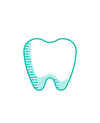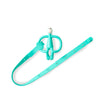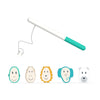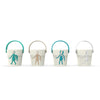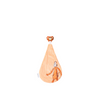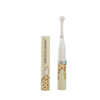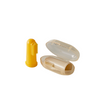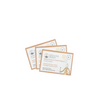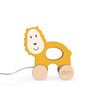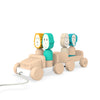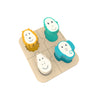How Long Should A Mother Rest After Giving Birth?
Over the last 40-weeks, your body has been doing the most natural thing, growing another human baby. It took patience and tender care to bring them into this world. And now that your baby is here, you will need to take some time to recover from the physicality of what your body has been through so that you don’t jump into too much too early. In the coming months, your energy and focus will be on your newborn baby. Time to rest will be less common, so it is important to take care and rest your body now, in order to be able to handle things later.
Postpartum Recovery
After delivering your baby over long hours, no matter which method i.e. Cesarean section or vaginal, your body has experienced physical labour and needs to recover. You should allow yourself six to eight weeks to rest after childbirth and it could take some more time before you feel like yourself again. The best thing you can do for yourself is to take care of your body during this time. Try not to do too much too soon, your body may resist and you could injure yourself. If feelings of frustration come into play and you need to get up and do something, try to ease yourself in and be as gentle with your body as possible when the time is right.
After giving birth your hormones will be fluctuating, so it is normal to feel a mix of emotions during the recovery period. These will soon regulate as your body recovers in time. If you are having feelings of hurting yourself, others or your baby tell someone who is close to you and seek professional aid.
Rest and Recovery
In a few months, you will begin to feel more yourself and find that you are working your way through the recovery process. Your resting period after birth will have its moments of course, which again is why it is so important to give yourself enough time to recover. Remember that every woman is different and some may need more time than others.
During your time of recovery and rest after giving birth you may experience the following:
Abdominal pain - These dull “afterpains” in your lower belly are due to your uterus shrinking back.
Baby blues - You may bounce from happy to sad, excited to tearful due to bringing your baby home for the first time.
Constipation - This could be caused by the medicine you received at the hospital, loss of fibre and caution from tearing stitches.
Haemorrhoids - These are painful swellings around your bottom caused by pushing during labour.
Hormone shifts - These can cause different effects such as sweating and hair loss.
Perineum soreness - This may be from labour incision, stitches or swelling.
Sore nipples and breasts - This may be caused from breastfeeding, latching, cracks or duct blocks.
Stitches - Stitches given in the hospital can take 1-2 weeks to heal. Try to keep them clean with hot water to prevent infections.
Vaginal bleeding - Bleeding and discharge is normal after childbirth, this is how your body cleans out the tissue and blood that nourished your baby in the womb, but if you are concerned about how much you are bleeding, it’s best to contact a Doctor.
Water retention - Swelling from pregnancy and childbirth will begin to go away further into recovery when your hormones begin to regulate.
These effects should dull and return to normal towards the end of your recovery period. It is very important that you allow your body time to recover from these experiences. Stay in tune with your body and communicate what you are going through to those around you. Family and friends will want to help where they can, so don’t be afraid to ask them for the things you might need e.g. baby wipes, nipple cream or indulgent snacks for Mum.
If you think that what you are experiencing isn’t quite right or too intense, seek medical advice as soon as possible as there could be an underlying problem.
Tips for Family and Friends
Here are some tips for when family and friends come to visit:
Time - Give family and friends a time to stop in and a time to go home at. This will stop people from showing up unannounced and will help with feeding and bedtime routines down the line.
Cleaning - Don’t put pressure on yourself to clean every inch of your home, especially when recovering from childbirth. If visitors are coming over, ask for help from your partner or a close friend or family member to clean the room.
Holding the baby - Ask visitors to wash their hands before holding the baby, they have weak immune systems and germs can make them sick at a young age.
Social Media - Don’t let filtered and edited images of recovering mums online make you feel negative about your experience. You are amazing.
Self-Care - Don’t forget to take care of yourself and assign time for you during your recovery after giving birth.
As a mother recovering from childbirth, rest is the most important thing you can do at this time. Everything else will fall into place, but for now, you need to rest and let your body recover. We hope that this blog has helped you to understand how long a mother should rest after giving birth and that our tips are found useful.
Related blog: Becoming a Parent for the First Time

